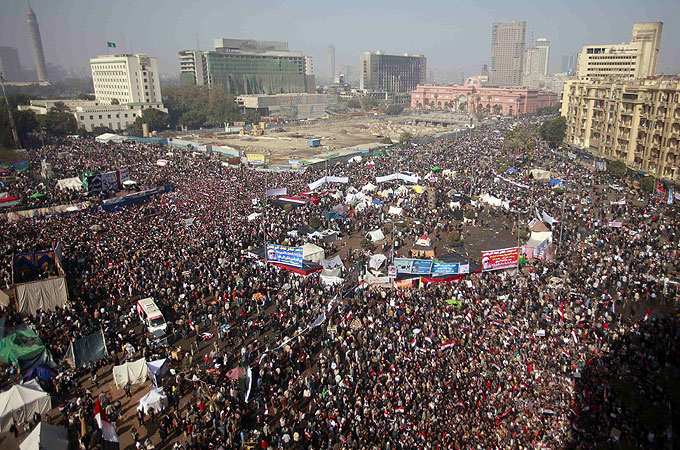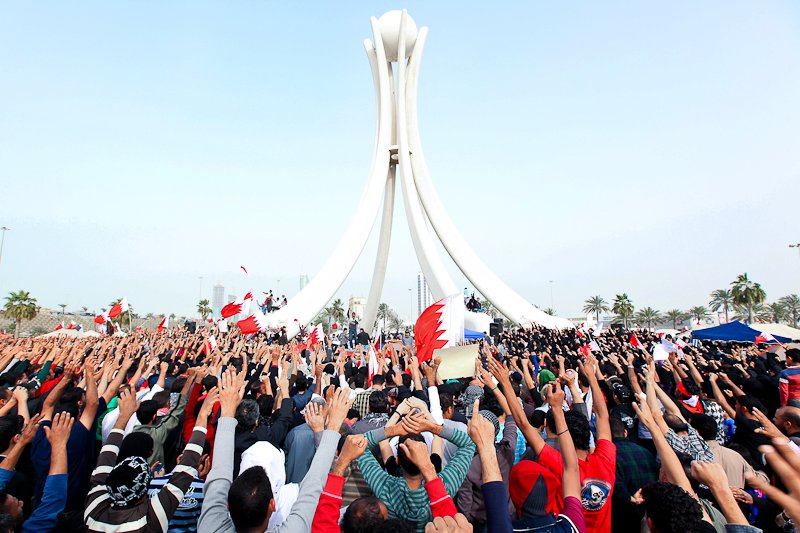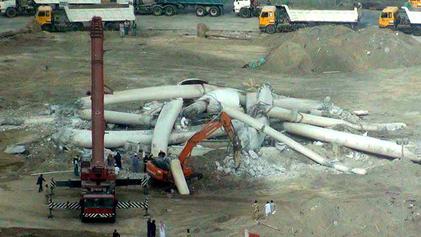On December 17, 2010, a street vendor named Mohamed Bouazizi set himself on fire in protest. Four weeks later, Tunisia's Zine al-Abidine Ben Ali was gone. Protests spread to Egypt, Bahrain, Yemen, Libya, and Syria. Some successfully ousted their autocratic leaders, some were brutally repressed, and others are ongoing. In almost all cases, the final outcome is still up in the air. More than one year on, how have the countries of the Arab Spring fared?

Tunisia
Change in rank in the Economist's Democracy Index: ↑ 53
On October 23, 90% of registered Tunisian voters elected members of the Constituent Assembly, tasked with drafting a constitution and forming an interim government. The moderate, Islamic Ennahda ("Renaissance") Party won a plurality (89 out of 217) of seats and formed a coalition with the center-left Congress for the Republic (CPR) and Ettakatol Parties. On December 10, the Assembly adopted a provisional "mini-constitution" that establishes the framework for the interim government until a permanent constitution is adopted. Ennahda's Hamadi Jebali was chosen as the interim government's prime minister. Jebali appointed a new government and took office on December 24.
Though Ennahda is an Islamic party, there is little worry of it turning Tunisia into a fundamentalist state and rightly so. Ennahda's representatives have advocated a government based on the "Turkish model," i.e. a secular republic with a combination of Islamic and secular parties. Its platform called for gender pay equality. And it will be counterbalanced by liberal, secular parties both in its coalition and opposition.
The real issue is that the government is not moving fast enough to combat the economic issues that triggered the revolution in the first place. (Though Tunisians are highly educated, Tunisia's per-capita GDP is only $9,557.) According to activist Lina Ben Mhenni, the
people, now in power, have ignored the real problems of Tunisian citizens—the problems that drove people to the streets last year. Instead of addressing them, as they promised in their campaigns, they are trying to divert our attention to those issues of religion and identity. And, unable to keep their promises, they have started to use violence against the people who continue to demonstrate. In recent weeks, at least five people have set themselves on fire.

Protesters gathered in Tahrir Square four days ago with some commemorating the anniversary of the revolution and others calling for a renewal in revolutionary zeal.
Egypt
Change in rank in the Economist's Democracy Index: ↑ 23
The Arab Spring came to Egypt on January 25, as tens of thousands poured into Tahrir Square. Those numbers swelled, and Hosni Mubarak resigned on February 11, devolving power to the Supreme Council of the Armed Forces (SCAF) under Field Marshal Hussein Tantawi. Protests continued with demands ranging from speeding up reforms, postponing elections, and bringing Mubarak and others to trial. SCAF continued to use the emergency powers used by Mubarak, trying civilians in speedy military courts.
Elections for the People's Assembly--the Egyptian Parliament's lower house--were confusingly complex and held in waves from November through January. As in Tunisia, Islamists, in this case the Muslim Brotherhood's Freedom and Justice Party, won a plurality of seats due to their organization and their history of opposing the regime. The Assembly was sworn in on January 23, and the SCAF delegated legislative power to it. SCAF also announced a partial lifting of the state of emergency in place essentially since 1967. (In a statement, Tantawi said that emergency powers still applied in cases of "thuggery," which may render this statement hollow.) However, SCAF is still running the show in Cairo and has reserved 10 seats for itself in the Assembly.
 Elections for the Shura Council (the upper house of Parliament) are ongoing and presidential elections are set to take place by June 30, after which SCAF will hand over power. Turnout for the Shura Council elections, unlike those for the Assembly, was low, as Egyptians are frustrated with the lack of progress. Both houses of Parliament will be responsible for creating an 100-member assembly tasked with drafting a constitution.
Elections for the Shura Council (the upper house of Parliament) are ongoing and presidential elections are set to take place by June 30, after which SCAF will hand over power. Turnout for the Shura Council elections, unlike those for the Assembly, was low, as Egyptians are frustrated with the lack of progress. Both houses of Parliament will be responsible for creating an 100-member assembly tasked with drafting a constitution.
As it stands, there is a three-way contest for power between the armed forces, Islamists, and secular liberals. None of the sides are completely unified; indeed, there are over 100 political parties in Egypt today. There is a widespread opinion among the Egyptian people that the Muslim Brotherhood has made or will make a backroom deal with SCAF. More likely, in my opinion, is that the Brotherhood is trying not to alarm them in order to avoid an Algeria-style coup.
As in Tunisia, we should not worry that the Islamist FJP holds a plurality of seats. Though FJP's Saad al-Katatni is the Assembly's speaker, one of the deputy speakers comes from the Wafd Party (to Katatni's left) and the other comes from the Salafist Party (to his right). Like Tunisia's Ennahda, FJP has taken moderate stances in public and is rightly focusing on Egypt's economic problems. Egypt has been hit hard by inflation and a decline in tourism.
Tunisia and Egypt have arguably been the most successful in democratizing in the wake of the Arab Spring. Though the autocrats are gone, the revolution is not over, as the two nations wrestle with forming a new constitution, a new government, and new democratic institutions.
Read Part Two on Libya & Bahrain and Part Three on Yemen.















